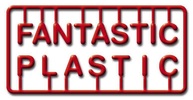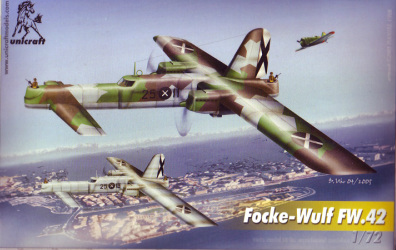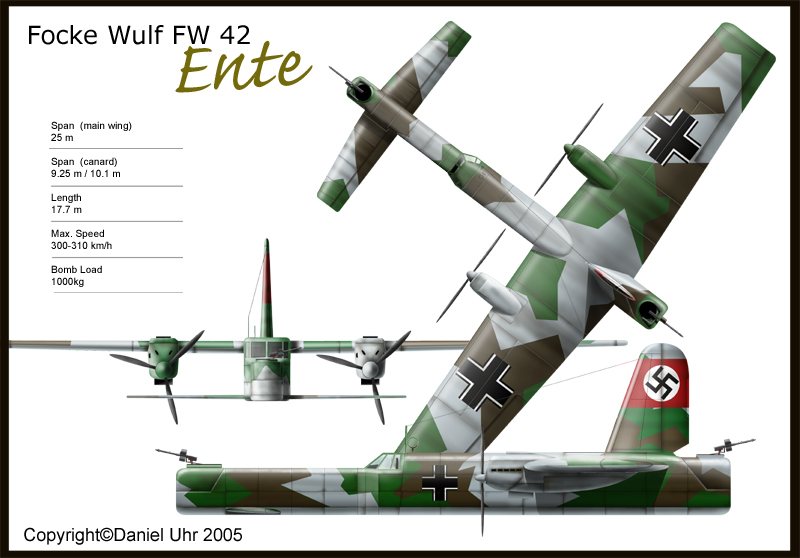Focke-Wulf F.42 Heavy Bomber Concept (1933)
About the Design
This twin-engine canard-style bomber was based on Focke's successful FW-19 "Ente" (Duck) research aircraft. Development began in 1931 and continued until 1933. Several variations were designed and tested via wind-tunnel models; these included planes with multiple tail fins and an elevated forward canard. (The canard was eventually placed low to improve the pilot's field of vision and give the forward gunner a broader field of fire.) All versions called for a long, thin fuselage with open-air gunnery stations at the extreme ends, plus a large rear-mounted wing. Power was to be provided by two BMW Vlu 12-cylinder enignes.
Reportedly representatives from Russia and/or Japan visited the Focke factory to inspect a full-sized mockup with an eye towards importing the plane, but no construction contracts were ever issued. With the Luftwaffe showing no interest in the plane, the project was eventually cancelled in the mid-1930s. (Historical note: Information on the FW.42 was not even discovered until the factory's WWII-era ruins were excavated in 1969.) |
About the Kit
This large resin kit featured a vacuform canopy but, unlike most other Unicraft kits, did not come with a solid resin canopy alternative. Still, for this model, the canopy is painted over and decals used to represent windows. The "gunner" figures are from a 1/72 styrene kit. This model was built from an original issue. |



